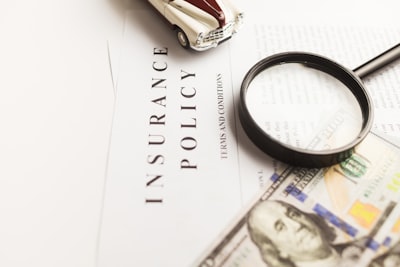Having a car wreck means damaging your vehicle, and possibly turning to your auto insurance to pay for the repairs. However, there are times when your insurer might opt to declare your car a total loss. At this time, they will provide you with a settlement to replace your vehicle (provided that you have physical damage insurance in the first place).
However, when you total your car, you might see your insurer raise your premiums the nest time you renew your coverage. This will put you on the line for a higher monthly premium, which no one wants to face. Why do rates rise after you total a car?
What Caused the Car Accident? 
When you have a major accident, then your auto insurer is going to want to know why. After all, they are the ones who are going to have to pay for the accident damage.
Some accidents are beyond your control. You might be rear-ended while at a stoplight, for example. Under the circumstances, you were obeying the law, and it was the other driver who ran into you. Therefore, the fault lies with them.
However, if you were to rear-end another vehicle because you didn’t stop in time, then you will be at-fault for the accident. At this time, because you cause the wreck that damaged both your car and someone else’s property, then your insurer is likely to have to bear the brunt of the recovery costs. Therefore, they are going to likely view you as a high-risk driver.
Because they consider that you have a higher likelihood of having an accident behind the wheel, your insurer will likely have to raise your premiums. The more likely you are to file a claim, the more you are going to cost the insurer. After all, if you total cars frequently, that puts the insurer on the line for thousands of dollars’ worth of settlement costs. Therefore, they simply must make up this cost risk.
Will Rates Increase for No-Fault Accidents?
Just because an accident was not your fault, that does not mean that you are free from rate increases.
For example, if you get hit by an uninsured driver, then you might be forced to file a total loss claim against your own uninsured/underinsured motorist coverage. As a result, your insurer will be the party that has to pay the settlement to replace your vehicle. Therefore, some will have to raise your rates because you relied on them to pay for your new vehicle. That is still a cost-risk even though it was not related to an accident that was your fault.
However, not all insurers penalize drivers who file uninsured/underinsured motorist claims, simply because they do not penalize driver who had no contributing fault in the accident. Therefore, if you ever need to file a claim for such damage, simply speak to your agent. They can help you determine what, if any, financial ramifications you might face.